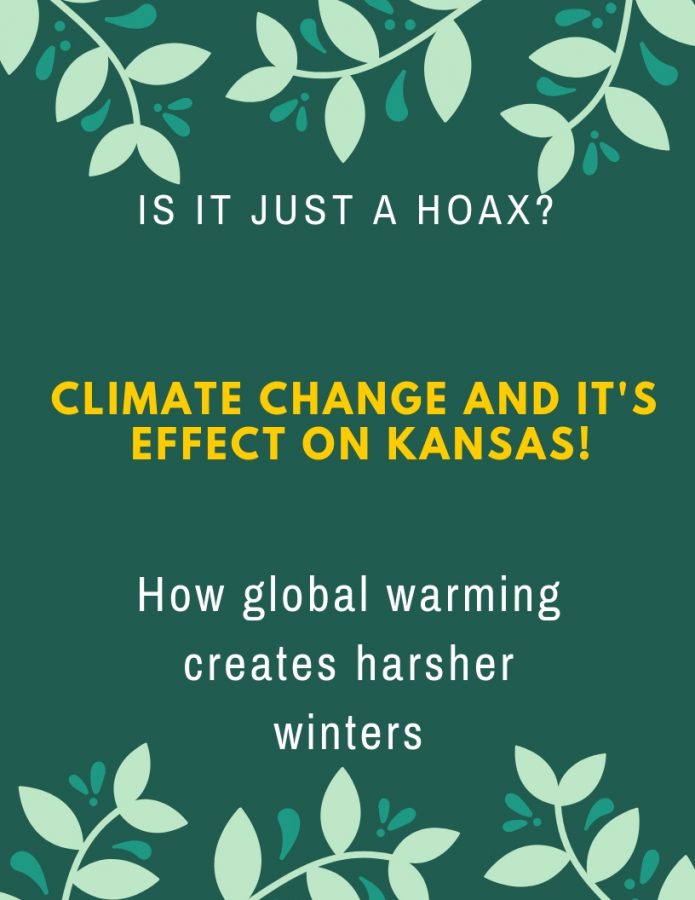Climate Change and It’s Effect on Kansas
“Climate Change and It’s Effect on Kansas”
December 12, 2018
Climate change is something brought up quite a bit in politics, and is rather controversial. Being a “red state”, the people of kansas, by majority, are Trump supporters; which makes a huge amount of people believe climate change/global warming is nothing more than a hoax. President Donald Trump tweeted in 2016 “. “Well, I think the climate change is just a very, very expensive form of tax. A lot of people are making a lot of money. I know much about climate change. I’d be—received environmental awards. And I often joke that this is done for the benefit of China. Obviously, I joke. But this is done for the benefit of China, because China does not do anything to help climate change. They burn everything you could burn; they couldn’t care less. They have very—you know, their standards are nothing. But they—in the meantime, they can undercut us on price. So it’s very hard on our business.” Donald Trump won the election in Kansas with 56.6% of the vote, so it’s no surprise that a lot of Kansans would second his statement. Climate change is scientifically affecting Kansas, and here’s how.
Many will argue that we aren’t seeing the impacts of global warming because we are having really harsh winters; even our President thinks so. He tweeted, “Ice storm rolls from Texas to Tennessee – I’m in Los Angeles and it’s freezing! Global warming is a total, and very expensive, hoax!”, in 2013. What many are unaware of, is global warming actually is a factor in harsher winters. The National Atmospheric and Oceanographic Administration (NOAA) defines climate as the average of weather over at least a 30-year period. So periodic aberrations- like harsh winters and snow storms- does not call the science of human-induced global warming into question.
So why should you care? How does it affect you? Well, according to the government organization, Climate Science Special Report, global sea level rise has already affected the United States; in more than 25 Atlantic and Gulf Coast cities, we have seen incidences of daily tidal flooding accelerating. This is only expected by these scientists to worsen. Not only that, but larger precipitation events such as rainfall or snowfall, is increasing in intensity and frequency across the United States. This is also supposed to increase over time. That isn’t all, we are also experiencing heat waves, forest fires, drought, hurricanes, and atmospheric rivers as a result of human-induced climate change and global warming. This affects almost everyone in the United States, and that includes Kansas. By 2050, Kansas is likely to have four times as many days 100 degrees (F). Certain people are especially vulnerable, including children, the elderly, the sick, and the poor. Climate change is something this entire country is experiencing, and before you develop your own opinions, make sure you educate yourself on such an important subject!














